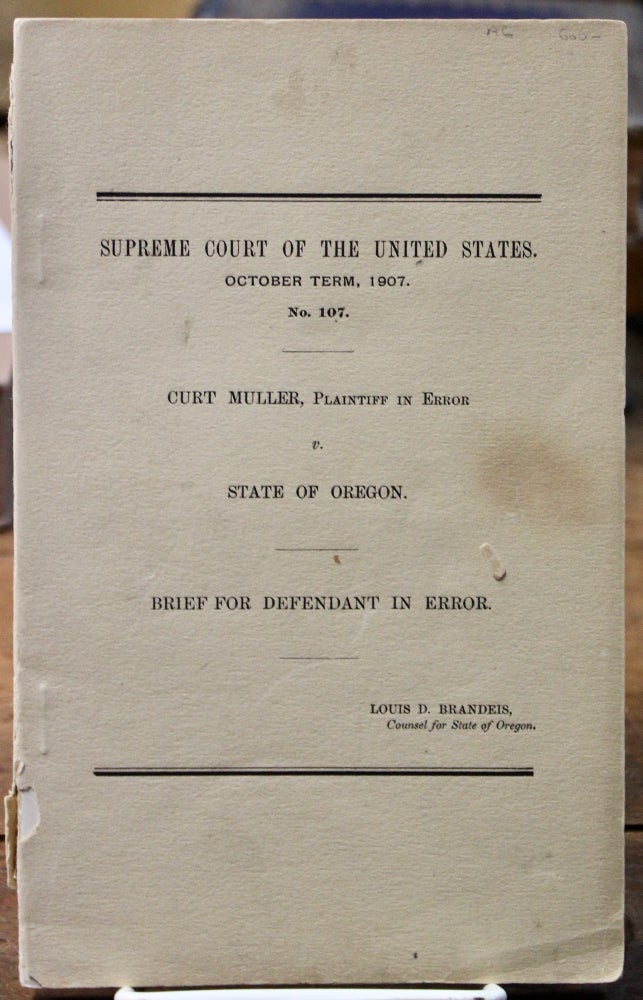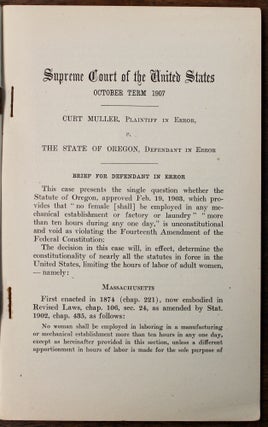Curt Muller, Plaintiff in Error v. State of Oregon. Brief for Defendant in Error. Louis D. Brandeis, Counsel for the State of Oregon. Supreme Court of the United States. October Term, 1907. No. 107.
[Boston? 1908]. In February 1903, Oregon enacted a law that prohibited women from working in “any mechanical establishment or factory or laundry” for more than ten hours a day. Curt Muller, a laundry owner, was charged in 1905 with requiring his employee, Mrs. E. Gotcher, to work a ten-hour day. Muller’s attorney argued that the law violated Gotcher’s Fourteenth Amendment rights by preventing her from freely contracting with her employer, but attorney Louis D. Brandeis (1856 – 1941) successfully contested that women workers needed special protections because of their perceived physical differences from men. Spine worn away at head and tail, but binding holds firm. Some toning around staples on first page. Still a very good, clean copy of the “Brandeis Brief,” a landmark document in the history of women’s labor rights, penned by Louis D. Brandeis, the first Jewish person appointed to the U.S. Supreme Court. Original buff paper wrappers, a bit toned, with some chipping to back cover. Octavo. 2, contents], 113 pp. Item #16928
“In what became known as the ‘Brandeis brief,’ a 113-page document outlining quasi-scientific data on the negative effects of long working hours on both women and men, [Brandeis] focused particularly on women’s dependent and biologically reproductive roles as opposed to economic issues. The court, referring to the ‘proper discharge of her maternal functions’ and the ‘well-being of the race,’ wrote that a woman ‘is properly placed in a class by herself, and legislation designed for her protection may be sustained, even when like legislation is not necessary for men, and could not be sustained,’” (Encyclopedia Britannica). The brief contains statements from social workers, medical professionals, factory inspectors, and other supposed experts, and lists eighteen states with labor laws likely to be impacted by the court decision in Muller v. State of Oregon.
In the prefatory note to the brief, Brandeis writes, “The decision in this case will, in effect, determine the constitutionality of nearly all the statues in force in the United States, limiting the hours of labor of adult women,” (p. 1). The case did, in fact, go on to serve as a harmful precedent for later restrictions on the labor rights of women. See the article from the Louis D. Brandeis School of Law Library on the Brandeis brief (University of Louisville website).
Price: $1,750.00




